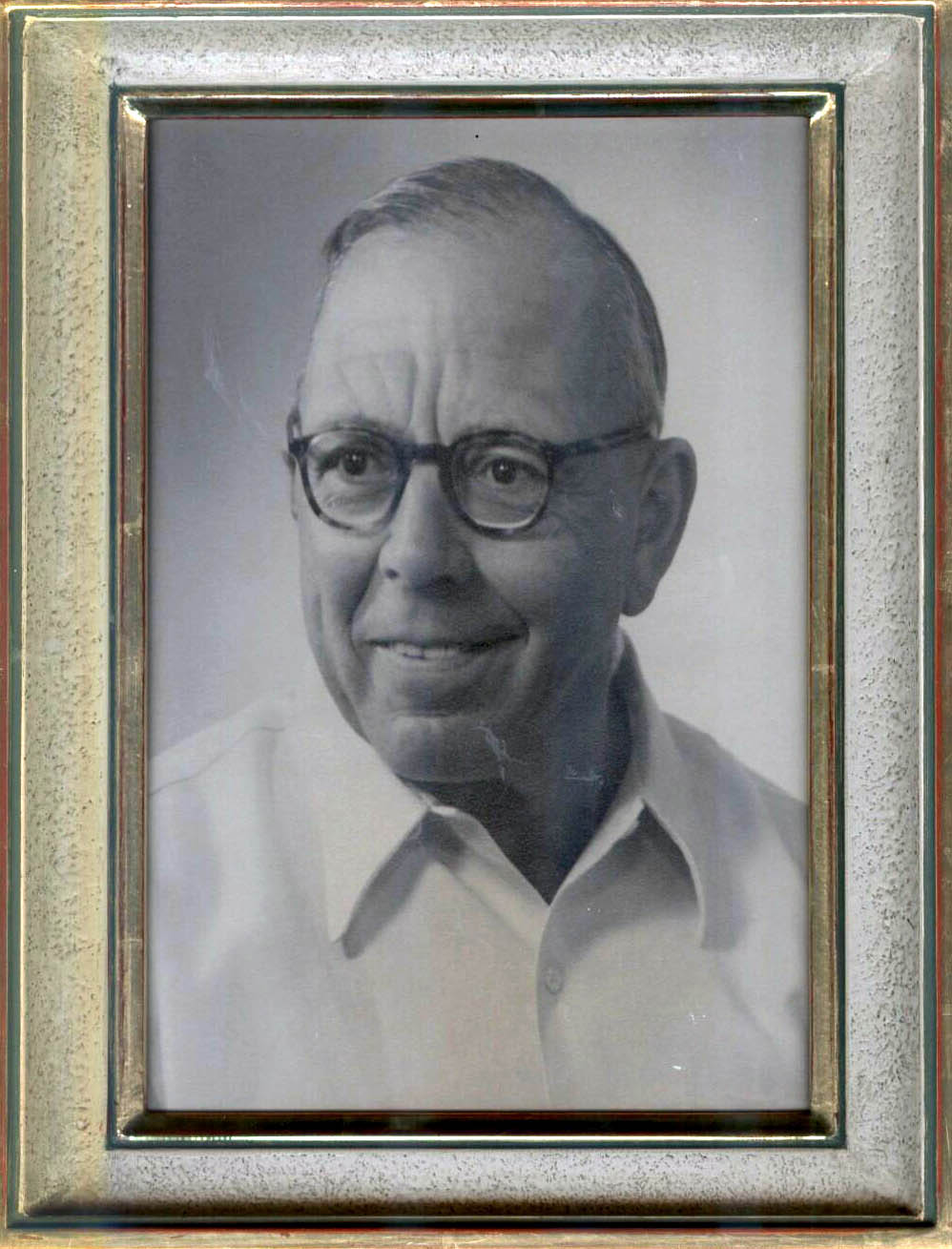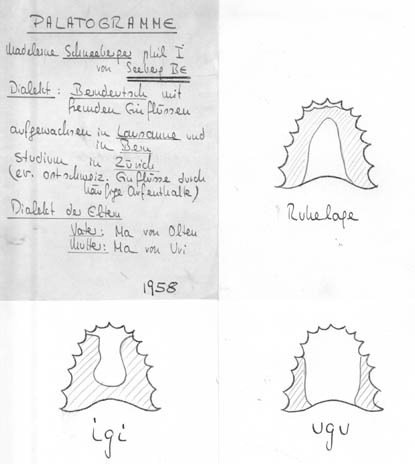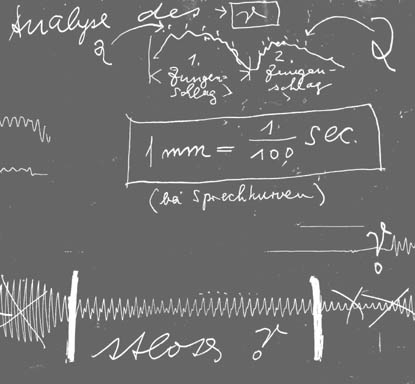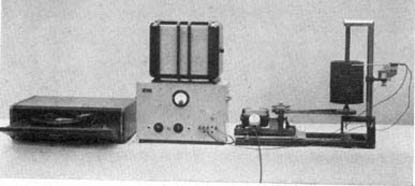Navigation auf uzh.ch
Navigation auf uzh.ch

Eugen Dieth – Anglicist, Dialectologist and Phonetician – was Professor of English Philology at UZH from 1927 until 1956. From 1934-1956 he was also the director of the Phonogram Archives. In 1938 he created the so called 'Dieth-Schrift', an orthographic norm for Swiss German dialects which was published unter the title Schwyzertütschi Dialäktschrift.
In 1935 Prof. Dieth founded the Phonetics Laboratory, which gained offical status as a Department of the Faculty of Arts in 1943. The Laboratory served the course "General Phonetics", held from 1936 on every third semester. Dieth's teaching experience led to the publication of the book Vademekum der Phonetik (1950).
In articulatory phonetics, Dieth mainly used palatography. The "Vademekum" contains several palatograms, mostly made by students .

For the acoustic analysis of speech sounds Dieth used kymography.

He first worked with a pneumatic and then with an electric Kymograph, both developed by the engineer Schiltknecht.

Dieth was supported in his work by the assistent Dr. Rudolf Brunner, who published in 1954 his doctoral thesis on Die Stimmhaftigkeit der französischen und zürichdeutschen Lenislaute. Together with Dieth, Brunner dedicated his life to the documentation of Swiss German dialects, publishing audio documents of the Phonogram Archives as well as experimental studies such as Die Konsonanten und Geminaten des Schweizerdeutschen experimentell untersucht (1943).
Rudolf Brunner was succeeded by Sonja Spörri-Bütler, who published her PhD Untersuchungen über den französischen Prosarhythmus an Texten von Lautréamont in 1956. She also worked on the phonetics of Zurich German, e.g. with a study conducted in 1981 with Daly H. Engstrom on A Voice Onset Time Analysis of Inital Swiss-German Stops (Folia Phoniatrica 33).
Since 1995 Stephan Schmid has been responsible of the Pholab.
In 2010 UZH created a new Assistant Professorship in Phonetics and Phonology hold by Volker Dellwo. In 2017 he was appointed Professor ad personam for Phonetics and Speech Sciences, and since 2018 the Phonetics Lab has been part of the Institute of Computational Linguistics.